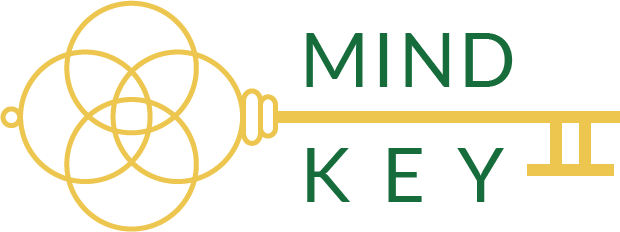
Who are you? A look at Ego and Personality Development
by Danielle Rose and Libby Reilly
Defining personality and how your ego forms can be a confusing task. This is because, at its heart, personality is who you are. What you are is a daughter, a son, a grandma, a teacher, a friend, a fill-in-the-blank. But who you are is the base of your being. Strip away all the labels and the emotions. Strip away anything but a given situation and how you react to it—that is your personality.
Why are we talking about personality types in an issue on ego? Because our personality is part of what shapes our ego, and how we perceive and interact with the world. How do you interact with the world? How can a better understanding of who you are and how you tick help you calm your ego so that it works with you, rather than against you? Let’s find out…
The Id, the Ego, and the Superego
One of the key components to the development of Ego is a healthy balance of the Id and the Superego. As a professor of Psychology, a former social worker, and child developmental specialist, Theresa Birmingham has come into contact with many youths who are still trying to figure out who they are.
“As adults, it is so important that we help these children—from infancy into college—develop a healthy, confident, well-formed sense of self,” Theresa stated. “This means that we, too, must be a part of learning the individual’s triggers, strengths, weaknesses, developing gifts, love languages, and whatever else, in order to be an aid rather than a hindrance to their growth and development.”
“Young adults in general go through trying periods of working through who they are, but I’ve worked with the rejected and the unclaimed and the broken-hearted. Imagine not just dealing with all the physical changes of being an adolescent and a young adult, but also the mental struggles of being a castoff. How can you have a healthy ego if your needs haven’t even been met? Id. That’s our basic needs,” Theresa shared.
Superego is our understanding of right and wrong. How do you form a healthy ego with a less-than-desirable history? What about forming a healthy sense of self? If you grew up in a situation without nurture, how do you learn integrity, honor, honesty, and duty? And how, when the time comes to stick to your guns and be you no matter the given situation, do you stay true to you?
A history of defining personality types
Personality types have been an important element of understanding the psyche for the last century. Jung spoke extensively on our current understanding of personality types in Volume 6 of his collected works, and those prototype personalities were used to create the popular Myers-Briggs personality test, which remains the basis of contemporary personality tests.
Many professionals question how much our ego becomes involved in taking personality tests, and if they are even beneficial. However, the importance a basic self-understanding of how we think and act has on personal development and growth has allowed these tests a place in contemporary psychology that cannot be denied.
This 2018 study actually shows that personality tests are only of value in understanding behavior approximately a quarter of the time. However, it does seem to indicate that certain personality types are more prone to certain physical behavior (boldness, aggressiveness, activity) is connected to certain physical traits (high metabolism, hormone levels, body weight/size), which do have a significant impact on our behavior. When used in conjunction with other aspects of self, personality traits can offer a unique insight into our lives.
Additional studies show that personality traits offer insights on quality of life and treatment for things such as ADHD, breast reconstruction surgery, and caregivers of those with cancer.
Roadblocks to understanding the self
Rebecca G., a writer from Central Washington perceives herself as quiet, withdrawn and even invisible sometimes. She is a generally self-reflective and aware person. Upon completing the NERIS Type Explorer® personality test, she discovered that her type was INFP-A (introverted, intuitive, feeling, prospecting and assertive), “the Mediator” personality. Rebecca felt this outcome was ”dead-on in all respects.”
Some of her biggest roadblocks revolve around self-confidence and impatience. The test was a stark reminder that she has a hard time finishing projects. At first, she didn’t see this information as a beneficial reminder. As someone who is highly introspective, she enjoys tests such as these, but said that it didn’t truly offer her any insight that she wasn’t already aware of.
Upon further reflection, however, she said, “I’m just now realizing how much my impatience is affecting me, like when I’m doing something and not seeing the results… Now I’m reminding myself that things happen in their own time and not to get discouraged. Knowing that aspect of my personality is helping me mitigate it.”
Mother, manager, and a woman who loves the obstacle racing community, Sara Keese, sees herself as practical, rational, caring, helpful and sarcastic, as well as intelligent. Her biggest struggle is finding the positive in situations. On the other hand, she’s incredibly loyal, which makes it difficult to move into new situations.
“I communicate the issues and offer to collaborate, but still stay even after the situations are not addressed,” Sara said.
Her NERIS Type Explorer® personality type is ISFJ-A (introverted, observant, feeling, judging, assertive), also known as “The Defender,” which she felt accurately represented her and allowed her to recognize these personality attributes as the authentic self. Taking the test helped her understand that the reason she plays things close to the vest, which is that she cares so much.
“I am working on other ways to communicate my ideals,” Sara continued. “But my stubbornness for accuracy will not allow me to ‘let it slide.’”
She believes it is beneficial for loved ones and colleagues to take these tests as a way to understand how to communicate and work with each other.
It is important to note, though, that Rebecca cautions us about personality tests being useful starting points. However, she also states, “…in the end, self-reflection is going to be what really helps dig down to the unique parts of ourselves that can’t be caught in a generalized test.”
Know thyself
Knowing our personality type is an opportunity to face the ego head-on. An opportunity to see where our personality is tripping us up. Consequently, if we know ourselves, we can use that knowledge to restructure the ego to better serve us.
For example, 16 Personalities published an article that explained how although “turbulent” personalities tend to worry and can be portrayed as self-confident perfectionists, the turbulent personality offers them a lot of advantages over calmer, relaxed, free-from-worry “assertive” types. Society tends to value the ability to “chill out”. In fact, we learn in childhood that calm has greater value. “Assertive” personality types are celebrated.
However, there’s a benefit to recognizing the turbulence (or any other lesser-preferred) of your personality. Many turbulent types probably thought there is something wrong with them. Stress is bad, right? They built their ego around this belief. All so they could function in a world where which told them not to worry, to be happy. However, knowing that 50% of the population shares this trait may be reassuring for the turbulent type. It is also important to note that many of this 50 % are happy and highly successful individuals. Recognizing turbulence provides an understanding of these individuals’ degree of empathy as well. There is something special about being worrisome and in having concern for what people think. These individuals are not just “wound too tight.”
The article “Personality Traits, Ego Development and the Redemptive Self” explains that “psychologically healthy and socially engaged adults generally narrate their lives in a prototypical fashion labeled the redemptive self, consisting of five themes: a sense of childhood advantage, empathy for others’ sufferings, moral steadfastness, turning of negative events into positive outcomes (redemption sequences), and prosocial goals.” By exploring and understanding your personal narrative, you are making a way for healthy relationships as well as a healthy ego.
Ego’s role in defining personality in youth
We’ve heard it before in many different ways, but here it is. Give a man bread, and his belly will be full. Teach a man how to find the ingredients and how to make that bread, and he will never go hungry.
Adults and mentors give growing adolescents lectures, punishments, rewards and many other things to help them develop their personalities. However, if we really want them to understand, we need to give them the lowdown. In other words, we need to get down in the dirt and learn with them. We need to nurture and mentor in a way we haven’t done in quite some time. And we also need to help them stand strong. But when it comes down to it, let them stand on their own. We need to give them criticism when it’s due and help them understand that no one is perfect. It’s okay to mess up. It’s okay to have things to work on. We need to show them to not hide their light under a bushel. Strong personalities let their gifts and talents shine. A balance here of humility and pride in who they are.
Give them the tools they need, and they will build healthy egos. And not just healthy egos, but balanced egos sustained and created by the pull and tug of understanding and life.



 Our personality shapes our ego, why defining personality is useful. Image by Kerstin Zettmar.
Our personality shapes our ego, why defining personality is useful. Image by Kerstin Zettmar.  Our personality shapes our ego, why defining personality is useful. Image by Kerstin Zettmar.
Our personality shapes our ego, why defining personality is useful. Image by Kerstin Zettmar.